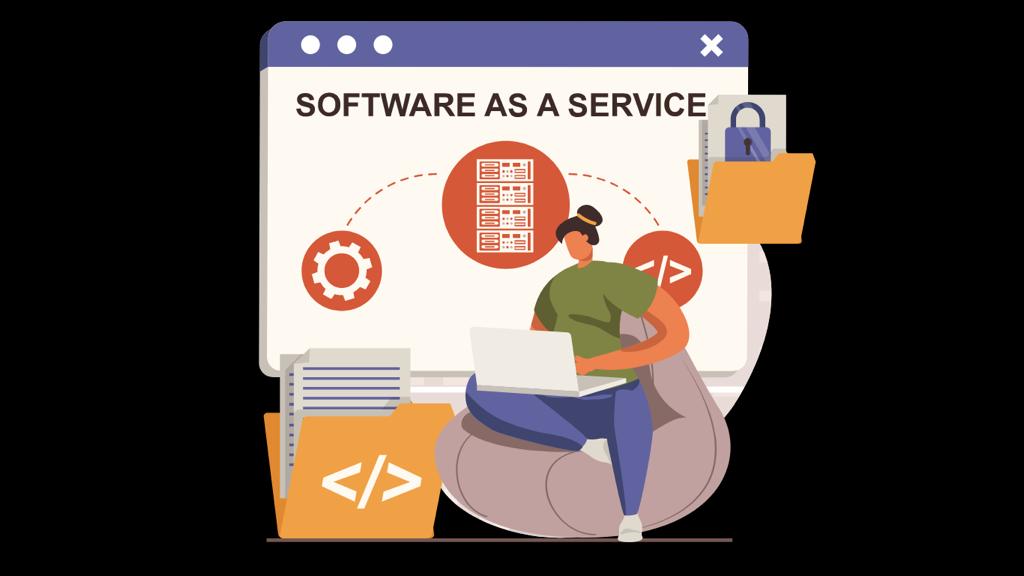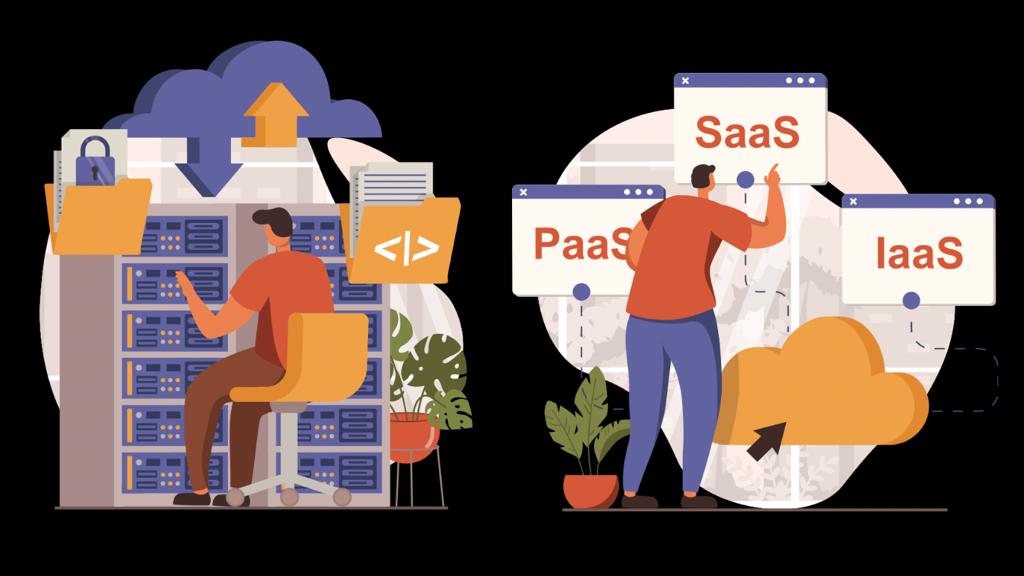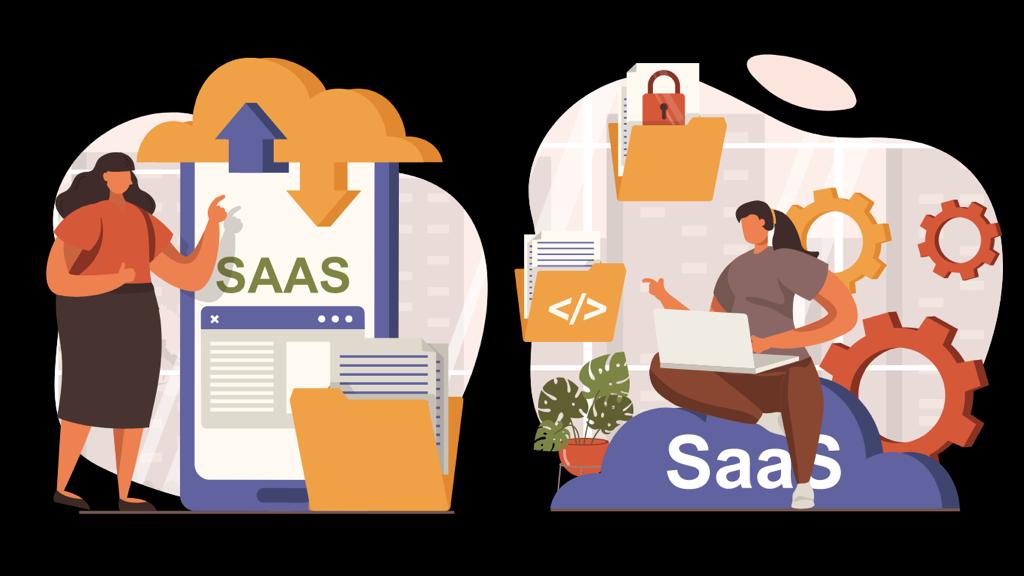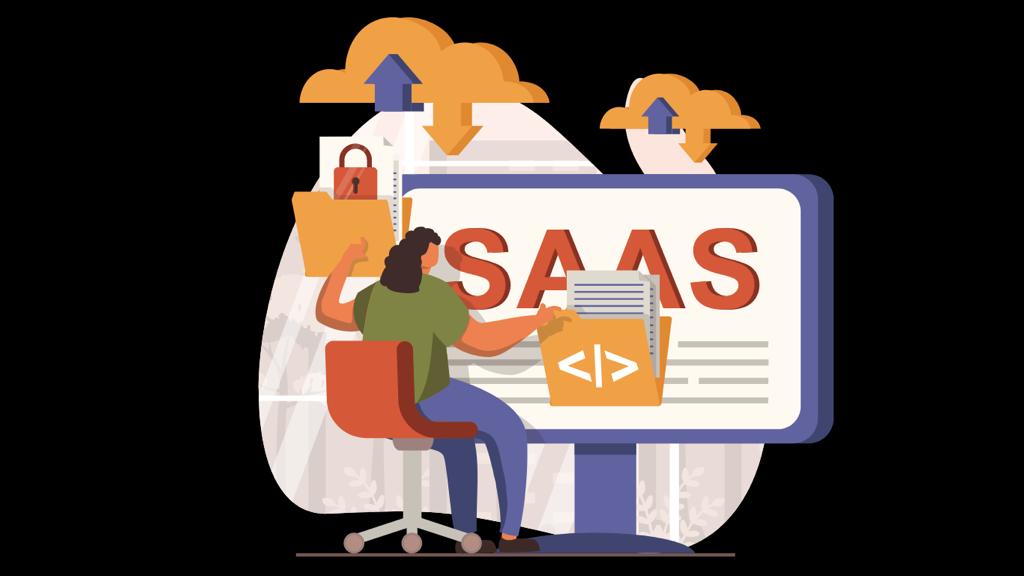
Introduction
The Software-as-a-Service (SaaS) business model has completely changed how companies conduct themselves in the current digital environment. Businesses can access and use software applications via the internet with SaaS, eliminating the need for installation and server maintenance. Due to this, it is now simpler and more affordable for businesses, particularly startups, to gain access to the newest technology and solutions that will help them optimise their operations and spur growth. With an emphasis on the advantages of the SaaS model helps startups, important factors to take into account when choosing a SaaS solution, and some instances of successful firms that have used SaaS to drive growth, we’ll explore how the SaaS model may help startups take a great jump in this article.
1. Why use the SaaS model for a startup?
The SaaS model helps startups and is a great option for companies because it has several advantages. First of all, because SaaS solutions are sometimes supplied on a subscription basis, companies can utilise cutting-edge software and technology without incurring the initial fees of traditional software solutions.
Second, SaaS offerings are very scalable, allowing entrepreneurs to simply increase usage as their needs change. This is crucial for startups because they might expand quickly and in a short amount of time.
Lastly, SaaS solutions are frequently available from anywhere, which is crucial for businesses with scattered or remote teams. SaaS solutions can aid companies in maintaining their flexibility and agility by allowing team members to access the same software and data from any location.
Last but not least, SaaS solutions provide simple integration capabilities, which are crucial for companies with multiple platforms and systems that must operate together flawlessly. SaaS solutions can assist companies by helping them save time and resources on bespoke development by providing pre-built connectors and APIs.
Because it provides cost savings, scalability, accessibility, and flexibility, as well as simple integration possibilities, the SaaS model is a great option for entrepreneurs. Startups can leverage cutting-edge technology and position themselves for long-term success and growth by utilising SaaS solutions.
2. SaaS Advantages for Startups
2.1. Cost-Effective
Saving money is one of SaaS’s biggest benefits for new businesses. Businesses don’t need to invest in costly IT equipment or hire specialised IT staff because its providers manage software installation, maintenance, upgrades, and security. Startups with tight budgets can especially benefit from this because it enables them to access cutting-edge software and technology without the initial outlay required by conventional software solutions.
2.2. Scalability
SaaS solutions are highly scalable, making it simple for them to support expanding enterprises. Startups may easily adjust their Software-as-a-Service consumption up or down as necessary as they grow and their needs change. Without having to worry about investing in new hardware or software solutions, this enables startups to stay flexible and responsive to shifting market conditions.

2.3. Accessibility
Businesses can access their software programmes with SaaS from any location with an internet connection. This facilitates remote teams’ ability to cooperate and work together without being restricted to a certain location. This is particularly important in the current business environment, as remote work has increased in popularity as a result of the COVID-19 epidemic.
2.4. Flexibility
Due to their great degree of adaptability, SaaS solutions enable organisations to specifically tailor their software applications to their needs. This implies that entrepreneurs only have to pay for the services and functionality they require. Furthermore, its suppliers update their software frequently to add the newest features and functionalities, guaranteeing that businesses always have access to the most recent technology.
3. Important Factors to Consider While Selecting a SaaS Solution
3.1. Security
Startups must make sure that their data and information are secure when choosing a SaaS provider. This includes assessing the provider’s data encryption, security policies, and disaster recovery procedures. Entrepreneurs should also think about whether the supplier adheres to rules particular to their business, including PCI-DSS for financial organisations or HIPAA for healthcare providers.
3.2. Integration
It’s crucial to pick a SaaS supplier that can interface with other corporate software programmes. This guarantees that all systems may operate together without manual data entering or duplication of effort. To make sure that the SaaS solution they chose can be linked with their existing systems, startups should assess the provider’s integration capabilities.

3.3. User encounter
Any software application must succeed to be successful, and the user experience is essential. Entrepreneurs should pick a SaaS provider with a user-friendly interface, straightforward navigation, and functionalities. By doing this, users are certain to pick up the software quickly, which lowers the learning curve and boosts productivity.
3.4. Support
Startups that use Software-as-a-Service solutions depend on the provider for assistance and problem-solving. It’s crucial to pick a service provider who provides prompt, accommodating customer assistance along with a variety of communication methods. Entrepreneurs should assess the support services offered by the provider to make sure they fit their demands.
4.Examples of SaaS model helps startups
Software-as-a-Service has been used by several great firms to fuel growth and achieve success. These are a few noteworthy instances:
4.1. Dropbox
One of the most successful companies of all time is Dropbox, a cloud storage provider. The company’s inventive SaaS model use is partly responsible for its success. Dropbox was able to quickly expand its user base by providing a straightforward, user-friendly file-sharing platform that could be accessed from anywhere.
Also, Dropbox has consistently added new features and capabilities to its software, which has kept customers happy and interested. Now, Dropbox is a well-known brand and among the most prosperous SaaS businesses in the world.
4.2. Slack
A messaging system created for team communication is called Slack. The SaaS model, which has made it simple for teams to connect and work together regardless of location, is largely responsible for the company’s success.
Slack has developed into a vital resource for companies of all sizes by providing a straightforward, user-friendly platform that can be accessed from anywhere. Also, the business has kept up its innovative streak by incorporating fresh features and integrations that have kept users happy and interested.
4.3. HubSpot
HubSpot is a platform for marketing and sales that have grown to become one of the most prosperous SaaS businesses in the world. The company’s inventive application of the SaaS model, which has made it simple for companies to handle their marketing and sales operations from a single platform, is what has contributed to its success.
Also, HubSpot has consistently added new features and capabilities to its platform, which has kept users happy and interested. With millions of users in more than 100 countries, HubSpot is currently one of the most widely used marketing and sales platforms worldwide.

Conclusion
Startups are rapidly embracing the SaaS model helps startups because of its many advantages, such as cost reductions, scalability, accessibility, and flexibility. Businesses can obtain cutting-edge software and technology without the up-front expenditures associated with conventional software solutions by utilising its solutions.
Startups must make sure that their data and information are secure when choosing a SaaS provider. However, the provider offers integration capabilities that can function seamlessly with their current systems.
Dropbox, Slack, and HubSpot are just a few great firms that used SaaS to propel growth and achieve success. All of these businesses have been able to quickly expand their user bases, innovate their software, and achieve success by utilising the advantages of the Software-as-a-Service model.
In essence, the SaaS model helps startups gives entrepreneurs significant advantages and can help them take a huge jump towards success. Startups can position themselves for long-term success and growth by carefully choosing the correct SaaS provider and utilising its advantages.
Your opinion matters to WLC. Tell us what you think about this topic and start a conversation with others in the comments.




